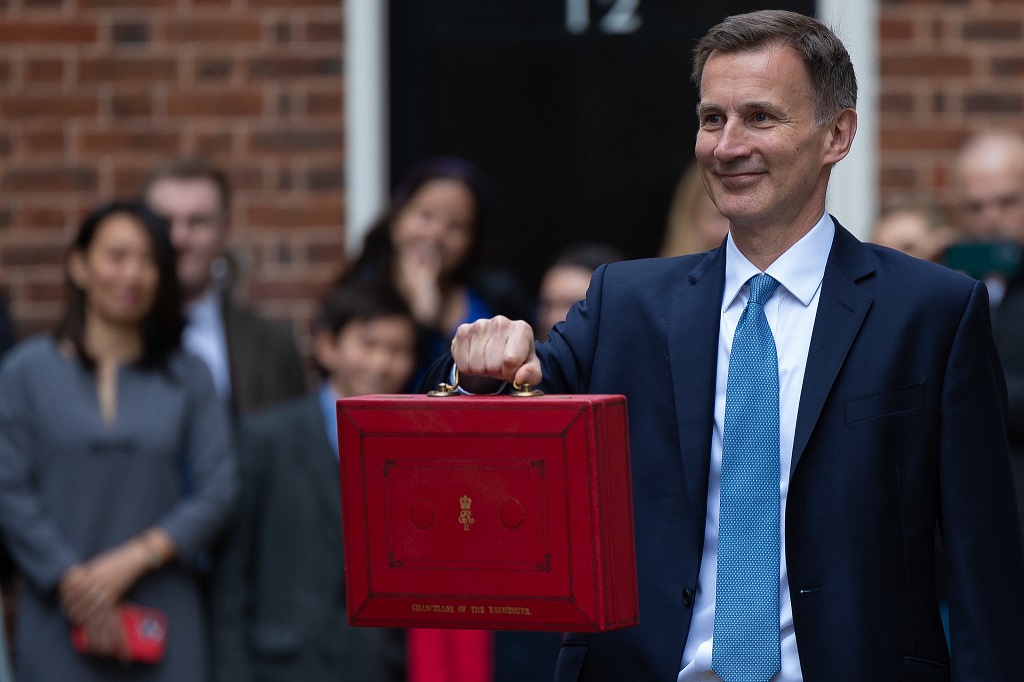Budget 2023 | Takeaways + reaction
There were plenty of eye-catching points for businesses in the North to take from chancellor Jeremy Hunt’s Spring Budget – investment zones, tech incentives and funding changes for city regions among them.
Levelling up is certainly not dead as a policy mantra and was mentioned frequently in Hunt’s his speech. There were also repeated regional namechecks with standout measures affecting Greater Manchester, Liverpool, Yorkshire, and North Wales.
These include a new departmental-style single funding pot for Greater Manchester Combined Authority designed to “equip the Mayor and GMCA with additional tools to unlock the economic potential” of the city region.
Hunt’s “Budget for growth” aims to dampen the hopes of Labour, currently ahead in the polls, in the long run-up to the next general election, due by the end of January 2025.
Growth
Investment zones: £1bn for 12 new zones, on top of existing enterprise zones, receiving £80m each over five years in government support. This could be used for tax relief on stamp duty or business rates, or for local infrastructure. Proposals will come forward now from Liverpool City Region, Greater Manchester, the proposed North East Mayoral Combined Authority; Tees Valley, South Yorkshire, West Yorkshire.
Third round of Levelling Up Fund confirmed, worth £1bn, on top of £4bn already committed from the first two rounds.
Combined authority areas to receive £161m for regeneration, and £400m will be made available for new Levelling Up Partnerships in areas including Blackburn, Oldham and Rochdale.
Consultation to begin on closing Local Enterprise Partnerships, their functions moving to local government from April 2024, to drive “local control over economic destiny”.
Green
A competition for construction of the first UK small modular nuclear reactors will be run this year.
Tax classification will redefine nuclear projects as sustainable investments.
Hunt announced £20bn investment in carbon capture, usage and storage over the next 20 years, claiming this would support 50,000 jobs. Funding is only expected after the next general election.
Tech
£2.5bn for quantum computing to compete with global players in this field.
New Manchester Prize for the best AI research each year, the winner receiving £1m, named after the Manchester Baby first programmable computer built in 1948.
Infrastructure
Hunt said City Region Sustainable Transport Settlements will allocate £8.8bn over the next five-year funding period.
Projects earmarked for funding include £20m towards the £100m needed to repair the Holyhead Breakwater. The Anglesey harbour is used for Irish Sea crossings.
Industry reacts

KQ Liverpool’s Colin Sinclair hopes investment zones ‘will be pivotal to raising aspirations’ for local residents. Credit: KQ Liverpool
Colin Sinclair, chief executive of Knowledge Quarter Liverpool, welcomed the investment zones: “This is welcome news for the City Region and KQ Liverpool. We very much hope that the new investment zones will be pivotal to raising aspirations, accelerating R&D and driving inclusive growth, creating skilled jobs for the people of the city, the region and beyond.
“In KQ Liverpool, and at nearby Daresbury, Liverpool City Region has world-leading clusters in health and life sciences, including infection prevention and treatment, civic data and mental health, materials chemistry and advanced manufacturing technologies. The funding and powers that investment zones could bring would give the opportunity to better leverage these existing strengths to supercharge economic growth across the city region.”
Neil Murray, chief executive of Liverpool-based Impact Data Metrics, a tech business working with developers and local authorities make evidence-based investment decisions said: “While any intervention to stimulate growth in the regions is a positive, the scale of these watered-down Investment Zones, offering tax reliefs of £80m over five years, is not going to be a game-changer. Global companies will be far more mindful of the increased rate of corporation tax, which at 25% from April makes the UK distinctly anti-competitive.
“Rather than pushing the needle in terms of meaningful levelling-up, Jeremy Hunt was tinkering around the edges today. As the next election nears, I’m sure we’ll see more headline grabbing policy announcements from the government in next year’s Budget.”
Steve Hogg, head of North West at JLL: “Today’s Budget was always unlikely to contain many surprises given the need for economic stability and to reassure financial markets. Still, an additional pot of funding for development in Greater Manchester, as well as a commitment to improve its transport infrastructure, will be welcomed by businesses across the region.”
Tom McWilliams, head of Yorkshire at JLL, said: “Reports that around £2.5bn remains unspent from the levelling up fund will prove frustrating to those hoping for support for underserved communities, especially following the postponement of HS2.
“As inflation looks likely to subside later in the year and the economy moves to a surer footing, the property sector will be hoping this statement is the chancellor laying the groundwork for more extensive and ambitious support in the future.”
Sebastian Tibenham, deputy CEO at Pegasus Group: “It’s hugely encouraging to hear that both the West Midlands and Greater Manchester combined authorities will shortly be given greater autonomy over budget decisions for housing, transport and education. If these test cases prove to be successful, hopefully other city regions are able to agree similar deals with government, something the government stated is an intention for all mayoral authorities over time.
“Without doubt, decision-makers at a local level have a far better understanding of the issues impacting local communities and how best to invest public money effectively.”
Jeremy Hinds, director at Savills: “The Chancellor’s invitations to the regions to submit proposals for investment zones reveals what Westminster really thinks about devolution. It should be about handing power to authorities for them to make locally informed decisions, not inviting regions to submit bids and ask for permission.
“Further, it’s disappointing that the £161m pot announced for Greater Manchester and the West Midlands is smaller than expected and will also be shared with Greater London. Yes, there are areas within London that need investment, but if we keep including London in the levelling up agenda then we’re diluting the pot and diluting the impact.”
Nicole Roe, director at Eden Planning: “With the cost-of-living crisis continuing to bite, the increased support from the Chancellor’s Budget is welcome. This will hopefully give people more confidence in their financial standing and start to translate into wider economic benefits, including those that might trickle down to the construction and property sector.”
Gillian Worden, director at P4 Planning: “Despite the Chancellor’s positive spin, there can be no doubt that the economy is in need of serious investment to get things moving. So, we do welcome the government’s announcement of £58m to support key capital projects across the North West, and the new £400m Levelling Up Partnerships fund for 20 locations including Oldham, Rochdale, Wakefield and Redcar. Overall, it’s the right approach to be proactively investing in our regional cities and any investment is welcomed but we feel sceptical that £400m split 20 ways will be able to deliver meaningful change. We eagerly await to hear more details of how the fund will be apportioned and when it will reach the regions.”
Anna Wrigglesworth, director of UK North at C|T Group: “It’s fantastic that Greater Manchester have secured single-pot settlements and the retention of 100% of their business rates. This is what true devolution looks like. Manchester has always been a trailblazer, so let them be the first in a long line. Now that the door has been opened, I hope to see similar deals in West Yorkshire and South Yorkshire.”
John Keyes, international partner and chair of UK public sector, Cushman & Wakefield: “Support for investment in technology sectors including life sciences and creative industries will especially benefit central Manchester, as well as the wider cluster including Alderley Park, where these activities are fast growing already and – most importantly – where there are established partnerships ready to deliver the property and physical infrastructure needed.
“This feels like a shift in priorities – albeit a subtle one. Achieving growth means backing winners and locations and sectors that can deliver a step change. Levelling up is still with us but will not in the short term, and of itself, deliver the economic growth we need.”
Sir Roger Marsh, chair of NP11 group of Northern Local Enterprise Partnerships: “The NP11 has long argued that empowering local civic and business leaders is critical to ensure investment is targeted towards the specific strengths and opportunities of individual places, so we welcome moves towards greater fiscal devolution. There are opportunities for clean and innovative growth in all parts of the North, and as the Government levels up, we must ensure those areas earlier in their devolution journey are not left behind. This will be crucial as the role of Local Enterprise Partnerships becomes more integrated within local democratic structures, and we must preserve the public-private partnerships and cross-boundary, strategic thinking that LEPs have brought.”
Danny Hope, regional director — North West, Hydrock: “For our region — where levelling up remains a priority — I’m particularly looking forward to the impact the ‘trailblazer’ devolution deal will have. It should be the catalyst for the kind of progress we really want to see and need.
“I’m also pleased to hear about an additional funding package for the regeneration of areas like Oldham and Rochdale, and, in turn, the partnerships I hope we can form with local authorities, developers and other consultants.
“The announcement that Greater Manchester and the Liverpool City Region have been earmarked to be home to a new £80m investment zone is intriguing and will command a lot of focus, though we await further detail. Now I just hope the plan behind them is a good one as, in my opinion, driving regional productivity is the route to widespread prosperity.
“The commitment to low-carbon energy and nuclear, now classed as environmentally sustainable, including a new fund for SMRs, are steps in the right direction as we develop the critical infrastructure needed to move through an energy transition on our journey to net zero.”
Andy Delaney, director and head of Liverpool for AspinallVerdi, said: “We welcome the £500m-plus investment announced for regeneration and levelling up projects. The potential of 12 Investment Zones funded by £80m each over the next five years including those for Liverpool and Greater Manchester and focused on key industries and universities is a proven formula for success.”




